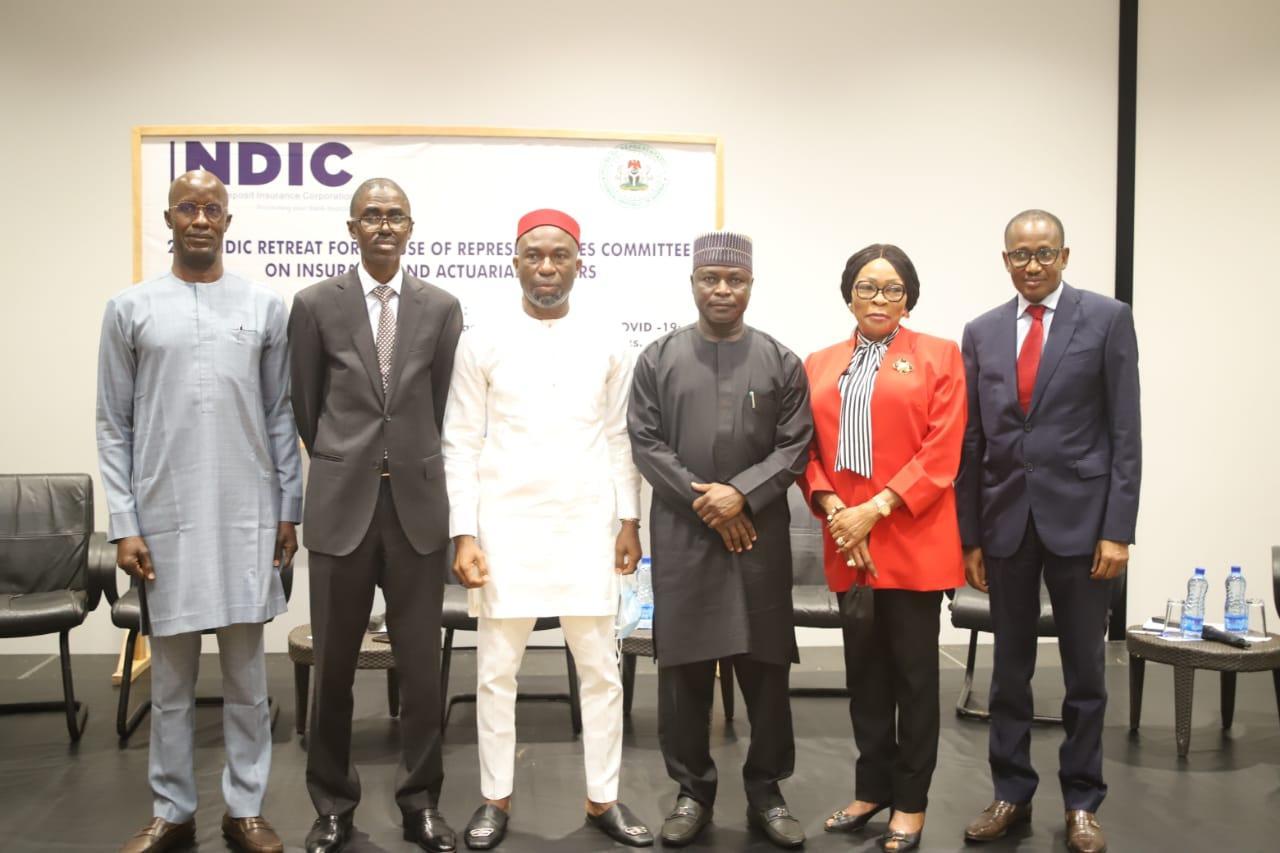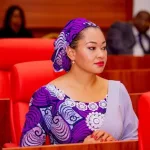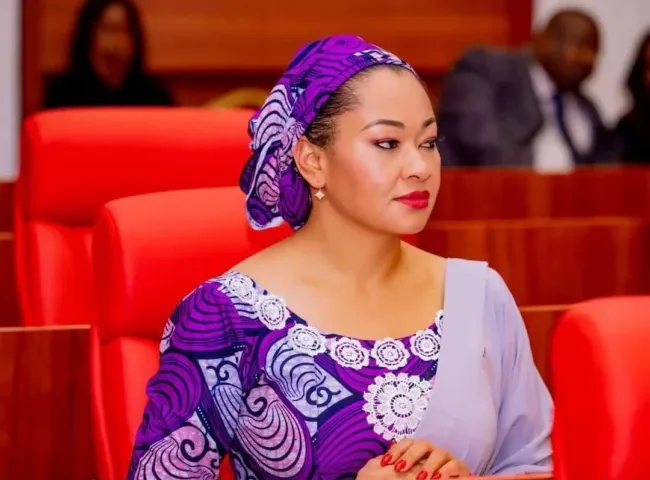The House of Representatives’ Committee on Insurance and Actuarial Matters has reiterated its readiness for increased collaboration with the Nigeria Deposit Insurance Corporation (NDIC) as it provides a financial guarantee to protect depositors in the event of a bank failure and offers a measure of safety for the banking system.
Chairman, House of Representatives’ Committee on Insurance and Actuarial Matters, Honorable Darlington Nwokocha, who disclosed this on Thursday at the 2021 NDIC retreat for members of the Committee in Lagos, said that the committee would strengthen the powers of the NDIC through speedy passage of the NDIC Amendment Act which is already before the National Assembly.
Earlier in his opening remarks, the Managing Director/Chief Executive Officer of NDIC, Mr. Bello Hassan, said the ultimate objective of the corporation is to protect small and unsophisticated savers who constitute the bulk of the depositors in the Nigerian banking system, as well as to ensure the stability of the system.
According to him, Financial Safety-Net is a framework comprising four (4) key components/ functions of prudential Regulation & Supervision, Resolution, Deposit Insurance and Lender of Last Resort.
The various components he explained, aim to promote financial stability at all times and manage eventualities of any financial crisis.
The CBN handles the Lender of Last Resort function, with the CBN/NDIC collaborating to address prudential Regulation & Supervision, and the last, Deposit Insurance, being undertaken only by the NDIC.
“The Corporation remains poised to effectively implement its public policy objectives to ultimately achieve the vision of becoming ‘One of the Best Deposit Insurers in the World’.
“In the over three (3) decades of its existence, the Corporation’s effective implementation of its mandate has earned it a prestigious position as a major player in the international community. As a member of the International Association of Deposit Insurers (IADI), the NDIC has established itself as a leading influence in the practice and implementation of DIS on the African Continent,” Bello stated.
Similarly, IADI’s recognition and the certification of the Corporation’s Academy as a Regional Centre of Academic Excellence for Capacity Building on the Deposit Insurance Scheme (DIS) for countries in Sub-Saharan Africa is also another testament of the NDIC’s international repute.
“I am very optimistic that the deliberations and discussion points arising from the papers to be presented here today, will further provide the needed arsenal for empowering the Corporation in the discharge of its Mandate through the instrumentality of the National Assembly,” he implored.
Also speaking, the Chairman, NDIC Board of Directors Mrs Ronke Sokefun said the theme of the retreat: “Strengthening the Nigerian Financial Safety-Net: The Role of Deposit Insurance” is unarguably topical in the light of the fast-paced developments in the nation’s financial system, which was first transformed with the influx of Fintech in traditional banking space, and later with the lingering effects of the COVID-19 pandemic.
According to her, as the financial system continue to evolve with advancement in technology, so do the risks facing its users.
“While the financial sector has leveraged on technology for efficiency and improvement in user experience to improve customers’ satisfaction, the gains have not been without significant costs. In addition to the inherent traditional risks, such as credit risks, liquidity risk and external risks of global contagion, the financial system faces the threats of emerging risks: the cyber-security risks,” she disclosed.
According to Sokefun, the financial safety-net arrangement is part of such measures designed by government to ensure that the economic progress of the citizens is not derailed should any financial institution fail.
She described Financial safety-net in the light of functions of prudential regulation/supervision; resolution, lender of last resort; and Deposit Insurance, with each effectively handled by competent government agencies.
“The explicit DIS became part of the financial safety-net in Nigeria with the promulgation of Decree 22 of 1988 that led to the establishment of the Nigeria Deposit Insurance Corporation (NDIC) with the mandate of deposit guarantee, bank supervision, and distress resolution and bank liquidation.
“The NDIC has continued to work with the CBN and other supervisory authorities to reduce fraud and forgeries in Nigeria. Also, the Corporation has continued to collaborate with the CBN to promptly resolve any complaints reported by customers of insured financial institutions,: she stated.
She therefore called for support from the members of the Committee of the National assembly, as the Corporation continues to match forward in pursuit of its Mandate to achieve higher trajectory of financial system stability and broad-based developments.

















Follow Us